|
Books Should Be Free Loyal Books Free Public Domain Audiobooks & eBook Downloads |
|
|
Books Should Be Free Loyal Books Free Public Domain Audiobooks & eBook Downloads |
|
Top Authors |
|---|
Book type:
Sort by:
|
By: Jane Austen (1775-1817) | |
|---|---|
 Pride and Prejudice
Pride and Prejudice
Austen’s timeless romantic classic, follows the lives of the five Bennett sisters, who live in a time where an advantageous marriage and social status are considered a fundamental for any woman to stand a fair chance at life. Set at the turn of the 19th century, Pride and Prejudice catches a perfect glimpse not only of a time when women were socially and economically dependent solely on their marital status, but also as an age of enlightenment and witness of the French Revolution. This romantic novel with its hint of comic references begins with the famous quote "It is a truth universally acknowledged that a single man in possession of a good fortune must be in want of a wife... | |
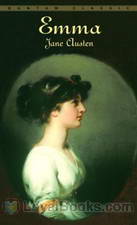 Emma
Emma
A comedy of manners, Emma portrays the spoilt, snobbish, yet charming Emma Woodhouse as she delightfully interferes in the relationships of others without taking much notice of her own heart. Although quick to make prejudgments and decisions, Emma is eventually able to notice her mistakes, and it is this revelation that makes her an endearing heroine and an inspiration to women throughout. Austen has not only created, but also brought to life the world inhabited by her characters through her vivid depictions and clever use of wit... | |
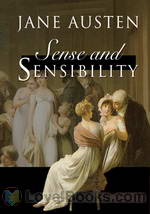 Sense and Sensibility
Sense and Sensibility
Two sisters, one practical and full of commonsense, the other a passionate and emotional creature, an uncaring brother and his avaricious wife, a handsome rake and a faithful gentleman – these are some of the unforgettable characters who make Jane Austen's first published novel, Sense and Sensibility such a delightful, witty and timeless classic. The novel was published under the pseudonym “A Lady” by its shy and retiring nineteen-year-old author, Jane Austen, in 1811. She was the daughter of a country rector and lived all her life in the circle of her large and loving family in a little village in Hampshire, England... | |
 Persuasion
Persuasion
Persuasion is the last completed novel by Jane Austen and it was published posthumously in 1818. Readers have often connected Persuasion with Northanger Abbey as the setting of both stories is in Bath, a highly fashionable health resort with which the author was well acquainted. Another interesting point to note is that the title of ‘Persuasion’ was probably not envisioned by Jane but by her brother or sister. Another theory is that her two siblings had a great role in choosing the title of the story... | |
 Northanger Abbey
Northanger Abbey
Jane Austen’s Northanger Abbey is a book about the life of Catherine Morland and her romantic relationships. The novel is divided into two parts; the first part begins with Catherine’s visit to Bath and her relationship with Henry Tilney and the other people she met there, and the second part starts with the arrival of Frederick Tilney and her visit to Northanger Abbey. This book alongside Pride and Prejudice and Sense and Sensibility is considered one of the major works of Jane Austen. The novel had undergone many revisions before its publication and it was even originally titled “Catherine... | |
 Love and Friendship
Love and Friendship
Begun when she was just eleven years old, Love and Friendship is one of Jane Austen's stories that very few readers may have encountered before. Austen experts feel that this story was written, like many others, only for the pleasure of her family and friends. It is scribbled across three notebooks, in childish handwriting, and the complete work is thought to have been written over a period of six or seven years. It is dedicated to one of her cousins, whom she was very close to, Eliza de Feuillide... | |
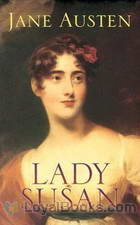 Lady Susan
Lady Susan
An epistolary novel, Lady Susan is an early work by Austen that was posthumously published in 1871. The short novel focuses on the self-serving eponymous anti-heroine, as she cunningly maneuvers her way through society in search of a wealthy husband for both her daughter and herself. Disregarding anything but her own selfish goals, Susan employs her charms to lure men and draw them into her web of deceit, no matter their age or status. Exploring issues including morals, manners, self-indulgence, malevolence, and social machinations, the relatively short novel is sure to fascinate with its atypical form... | |
 The Watsons
The Watsons
This fragment of a novel was written by Jane Austen in 1804 and remained untitled and unpublished until her nephew James Edward Austen-Leigh printed it in his A Memoir of Jane Austen in 1871. The title is from him. Mr Watson is a widowed clergyman with two sons and four daughters. The youngest daughter, Emma, has been brought up by a wealthy aunt and is consequently better educated and more refined than her sisters. But when her aunt contracts a foolish second marriage, Emma is obliged to return to her father’s house. There she is chagrined by the crude and reckless husband-hunting of two of her twenty-something sisters. | |
 Jane Austen's Juvenilia
Jane Austen's Juvenilia
Before becoming the author of such classics as Sense and Sensibility, Pride and Prejudice, and Emma, Jane Austen experimented with various writing styles as a teenager in the early 1790s. This is a collection of her juvenilia, including the epistolary novels Love and Freindship, Lesley Castle, and Lady Susan, as well as her comic History of England and some shorter pieces. (Summary by Elizabeth Klett) | |
By: Leo Tolstoy (1828-1910) | |
|---|---|
 War and Peace
War and Peace
Leo Tolstoy's War and Peace chronicles the lives of five Russian aristocratic families during Napoleon's invasion of Russia. Many considered this book to be the best Russian work of literature of all time and it is massive in scale. The book is divided in four volumes and the chapters don't just contain the narrative of the plot to the novel but philosophical discussions as well. This may be intimidating to average book readers but they shouldn't be discouraged to try reading War and Peace. After all, this book was written for all and not just for intellectuals... | |
 Anna Karenina
Anna Karenina
Leo Tolstoy’s psychological novel Anna Karenina follows the life of the enchanting and rebellious Anna who seeks to break free from the shackles of society. Set in late 19th century Russia, Anna is portrayed as an ideal, cultivated aristocratic wife, mother and model for women alike. Although at first glance she seems to have it all in life, Anna yearns for love and affection- something her cold diplomatic husband cannot provide. She grows discontent of their loveless relationship, and is tired of the façade she has been putting up in order to sustain a positive social image... | |
 The Kingdom of God is within you
The Kingdom of God is within you
The title of the book comes from Luke 17:21. It is a non-fiction work of the famous Russian author Leo Tolstoy. He wrote it after many years of reflexion on Christianity and Jesus. Many subjects are present such as wars, non-violence, misunderstanding by believers of the faith, etc. | |
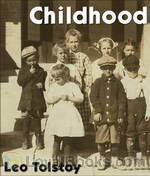 Childhood (English trans.)
Childhood (English trans.)
Childhood, published in 1852, is the first novel in Leo Tolstoy’s autobiographical trilogy, which also includes Boyhood, and Youth. Published when Tolstoy was twenty-three, the book gained immediate notice among Russian writers including Ivan Turgenev, and heralded the young Tolstoy as a major figure in Russian letters. Childhood is an expressionist exploration of the internal life of a young boy, Nikolenka, and was a new form in Russian writing, mixing fact, fiction and emotions to render the moods and reactions of the narrator. Childhood is Tolstoy’s first published work. Translated into English by C. J. Hogarth. | |
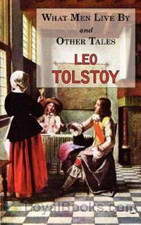 What Men Live By and Other Tales
What Men Live By and Other Tales
Although Leo Tolstoy (1828-1910) was a wealthy landowner, in his later life he had what was considered a “religious awakening.” This experience went on to inform his writing and his lifestyle in profound ways. His views transcended the specifics of religion, as known in his day – so much so he came to be a helpful guide both to Mohandas Gandhi and to Dr. Martin Luther King Jr. The four stories in this collection ask profound questions and gently supply helpful, non-dogmatic hints to their... | |
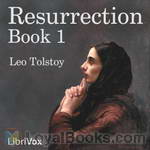 Resurrection
Resurrection
Book 1. Resurrection is the last of Tolstoy's major fiction works published in his lifetime. Tolstoy intended the novel as an exposition of injustice of man-made laws and the hypocrisy of institutionalized church. It was first published serially in the magazine Niva as an effort to raise funds for the resettlement of the Dukhobors. The story concerns a nobleman named Nekhlyudov, who seeks redemption for a sin committed years earlier. His brief affair with a maid resulted in her being fired and ending up in prostitution. The book treats his attempts to help her out of her current misery, but also focuses on his personal mental and moral struggle. | |
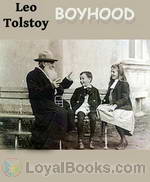 Boyhood
Boyhood
Boyhood is the second in Tolstoy's trilogy of three autobiographical novels, including Childhood and Youth, published in a literary journal during the 1850s. (Introduction by Bill Boerst) | |
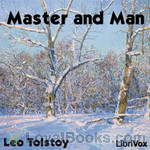 Master and Man
Master and Man
A land owner, Vasili Andreevich, takes along one of his peasants, Nikita, for a short journey to another town. He wishes to get to the town quickly ‘for business’. They find themselves in the middle of a blizzard, but the master in his avarice wishes to press on. They eventually get lost off the road and they try to camp. The master’s peasant soon finds himself about to die from hypothermia. The master leaves him on the horse to stubbornly try to find the road. When he returns, he attains a spiritual/moral revelation, and Tolstoy once again repeats one of his famous themes: that the only true happiness in life is found by living for others. (Wikipedia) | |
 What I Believe
What I Believe
"The inner working of my soul, which I wish to speak of here, was not the result of a methodical investigation of doctrinal theology, or of the actual texts of the gospel; it was a sudden removal of all that hid the true meaning of the Christian doctrine – a momentary flash of light, which made everything clear to me. It was something like that which might happen to a man who, after vainly attempting, by a false plan, to build up a statue out of a confused heap of small pieces of marble, suddenly... | |
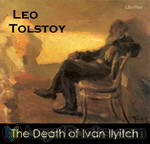 The Death of Ivan Ilyitch
The Death of Ivan Ilyitch
The Death of Ivan Ilyitch is the story of a socially ambitious middle-aged judge who contracts an unexplained and untreatable illness. As Ivan Ilyitch is forced to face the death he fears, he asks himself whether the life he thought was so correct was, in fact, a moral life after all. Written after Tolstoy's religious conversion, the novella is widely considered to be one of his masterpieces. | |
 The Slavery of Our Times
The Slavery of Our Times
This little book shows, in a short, clear, and systematic manner, how the principle of Non-Resistance, about which Tolstoy has written so much, is related to economic and political life. | |
 Bethink Yourselves!
Bethink Yourselves!
As Russia goes to war against Japan, Tolstoy urges those at all levels of society, from the Tsar down to the common soldier, to consider their actions in the light of Christ's teaching. "However strange this may appear, the most effective and certain deliverance of men from all the calamities which they inflict upon themselves and from the most dreadful of all—war—is attainable, not by any external general measures, but merely by that simple appeal to the consciousness of each separate man which, nineteen hundred years ago, was proposed by Jesus—that every man bethink himself, and ask himself, who is he, why he lives, and what he should and should not do... | |
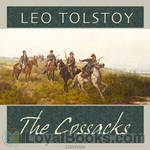 The Cossacks
The Cossacks
The Cossacks (1863) is an unfinished novel which describes the Cossack life and people through a story of Dmitri Olenin, a Russian aristocrat in love with a Cossack girl. This text was acclaimed by Ivan Bunin as one of the finest in the language. | |
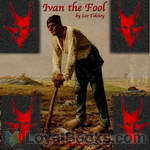 Ivan the Fool
Ivan the Fool
Written after Tolstoy suffered a spiritual crisis, Ivan the Fool is a fairy tale that offers children instruction in how to live rightly, simply, and generously. The story emphasizes the destructive aspects of materialism and militarism while idealizing manual labor and the peasant life. (Introduction by Dorlene Kaplan) | |
 The Kreutzer Sonata
The Kreutzer Sonata
Publication of The Kreutzer Sonata in 1889 was a significant intellectual event worldwide. Censored in Russia, it set off an explosive debate in Europe, America, and Asia on matters relating to sexual abstinence and the hypocrisy of marriage. The novella emphasizes Tolstoy's controversial view on sexuality, which asserts that physical desire is an obstacle to relations between men and women and may result in tragedy. The Kreutzer Sonata has been recognized as among the best examples of Tolstoy's art of storytelling.(Introduction by Dorlene Kaplan) | |
 Tolstoy on Shakespeare
Tolstoy on Shakespeare
This book contains a critical essay on Shakespeare by Leo Tolstoy. It is followed by another essay named "Shakespeare's attitude to the working classes" by Ernest Crosby and extracts of a letter by George Bernard Shaw. | |
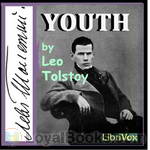 Youth
Youth
Youth is the third in Tolstoy's trilogy of three autobiographical novels, including Childhood and Boyhood, published in a literary journal during the 1850s. (Introduction by Bill Boerst) | |
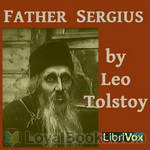 Father Sergius
Father Sergius
Prince Stepan Kasatsky experiences a disappointment with his fiancé and decides to become a monk! There is a story line, but beneath it, Father Sergius struggles to find peace and, if not happiness, then at least contentment. But he is always disillusioned and ultimately unsatisfied. Only in the end does he find his way by letting go of what he struggled to attain all his life, i.e. to be better than everyone else in whatever he did, and settle for the mundane. | |
By: Unknown | |
|---|---|
 The Bible, American Standard Version (ASV) - Genesis
The Bible, American Standard Version (ASV) - Genesis
The Bible was first translated into English some time in the 7th century by an unnamed monk known to us as the Venerable Bede. This was the Old English version and the work of translation from Vulgate Latin into Middle English was taken up again in the 14th century by the famous religious dissenter John Wycliffe. Modern translations date from the 16th century onwards and these were sourced from Greek and Hebrew versions as well as Latin. Most translations are made by a large group of scholars and a committee is set up to review and modify the work as required... | |
By: Lewis Carroll (1832-1898) | |
|---|---|
 Alice's Adventures in Wonderland
Alice's Adventures in Wonderland
An acclaimed children’s classic depicting the odd, but riveting journeys of the curious Alice as she explores the surreal world of Wonderland. Written by Charles Lutwidge Dodgson or better known under his pseudonym Lewis Caroll, this episodic novel is assembled in twelve chapters each containing a prominent adventure. The departure from logic and its embracement of pure imagination is what makes Alice’s Adventures in Wonderland a model for fantasy novels and a timeless classic. The novel begins when the self-aware young Alice, who grows bored of sitting by the river with her sister, and spots a peculiar looking rabbit, dressed in a waistcoat... | |
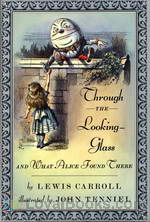 Through the Looking-Glass
Through the Looking-Glass
If you've read and loved Alice in Wonderland, you wouldn't want to miss reading about her further adventures, the strange and fantastical creatures she meets and the delightful style and word-play that made the first book so appealing. Through the Looking-Glass by Lewis Carroll is thematically much more structured and cleverly constructed as compared to the earlier Alice book but still retains its childhood elements of wonder, curiosity and imagination. Lewis Carroll was the pseudonym of Reverend Charles Lutwidge Dodgson, a gifted mathematics professor at Oxford during the late 19th century... | |
 The Hunting of the Snark
The Hunting of the Snark
The Hunting of the Snark is a long nonsense poem by Lewis Carroll describing the adventures of ten weirdly assorted characters as they pursue an elusive creature known as a snark. | |
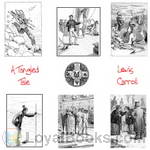 A Tangled Tale
A Tangled Tale
Lewis Carroll (1832-1896) is famous for Alice’s Adventures in Wonderland. It is less widely known that he worked as a lecturer for mathematics at Christ Church college, Oxford for 27 years. A tangled tale merges his two talents as storyteller and mathematician. It consists of ten short humorous stories which present one or more mathematical problems. The ten knots as they are called, were first published in The Monthly Packet magazine between April 1880 and March 1885, where readers were invited to solve the problems, and the solution was discussed in a later issue. | |